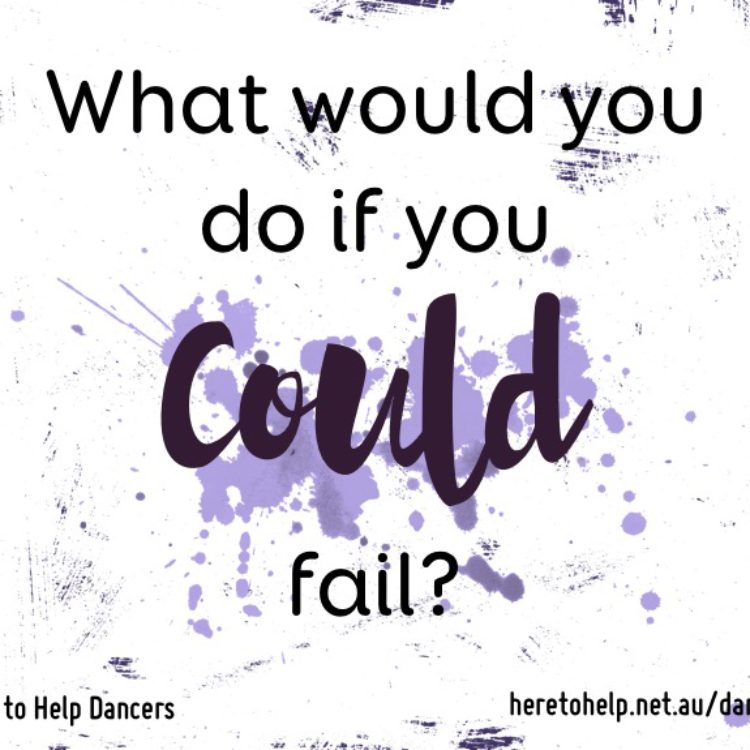What would you do if you could fail?
We often ask the question: “If it were impossible to fail, what would you do?”
I have used it myself in working with dancers to help them get past their self-doubt and step into a realm of possibility and hope.
When asked this question, dancers come up with some wonderful, big and beautiful dreams:
- dance on the Paris Opera stage
- turn 16 turns in a row
- dance the main role with my whole family in the audience
- Start a dance camp for kids with disabilities
- dance with all my heart and soul
- become a world-famous choreographer
The beauty of this question is that it bypasses all the heckling internal voices that say you can’t, you’re not good enough and who do you think you are? And it enables dancers to access genuine dreams and passions that make for some wonderful motivation and inspiration.
But it’s not an entirely magical question.
Because the fact is that, in reality, failure DOES happen.
And for the perfectionists out there, as inspiring as it can be to imagine a failure-free future, all this momentum screeches to a halt when the rubber hits the road and you need to start making the small, insignificant steps towards actually reaching these lofty goals.
You fall over in your next pirouette, and your internal critic comes back even stronger saying, “See, I told you, you’ll never be able to turn 16 turns in a row, you can’t even do one” and because you’ve opened up your vulnerable little heart, the words pierce and hope deflates.
When your hope gets crushed, it’s so easy to get overwhelmed by all the details of how much you still need to work on and improve for you to reach your goals – and feel like you’ll. just. never. get. there.
You can try to think positive, you can tell yourself you can do it, but deep down, you don’t believe it. The heckling voice has won and your attempts at positive thinking hit an internal wall.
Why?
Because you haven’t learnt how to make room for failure. And you haven’t learnt how to ease your way out of it when it does happen.
In this situation, asking the question the opposite way around might just be a key to getting some traction to get you out of your rut.
What would you do if you COULD fail?
If it were ok to fail, make a mistake, get it wrong? If there was no condemnation if you stuffed up? If you could just be average on your way to becoming excellent?
What if failing was just a normal part of getting you where you want to go?
What would you do? What would you TRY?
How would you dance? What kind of attitude would you have?
- I’d just give it a shot
- I’d have the courage to experiment with choreographing on my friends
- I’d practice my pirouettes more often
- I’d try hip-hop, I’d try ballet, I’d try contemporary
- I’d learn from my mistakes
- I’d practice my teacher’s corrections without being so afraid
With a failure-ready mindset, you just might find yourself taking some healthy risks that will be the actual steps that get you to your lofty dreams in the long run.
[pullquote]Learning to negotiate failure is a crucial part of nurturing your dance dreams.[/pullquote]
How can you make room for a bit of spontenaity, creativity and freedom when you’re feeling stuck? Let yourself fail and watch how you get over it.
You just might be surprised at yourself. You just might learn how to negotiate failure and stay on track to reach your dreams.
So, now over to you: What would you do if you COULD fail? Let us know in the comments or over on Facebook.
🙂 Philippa
Related: Reframing failure in 5 Baby Steps

